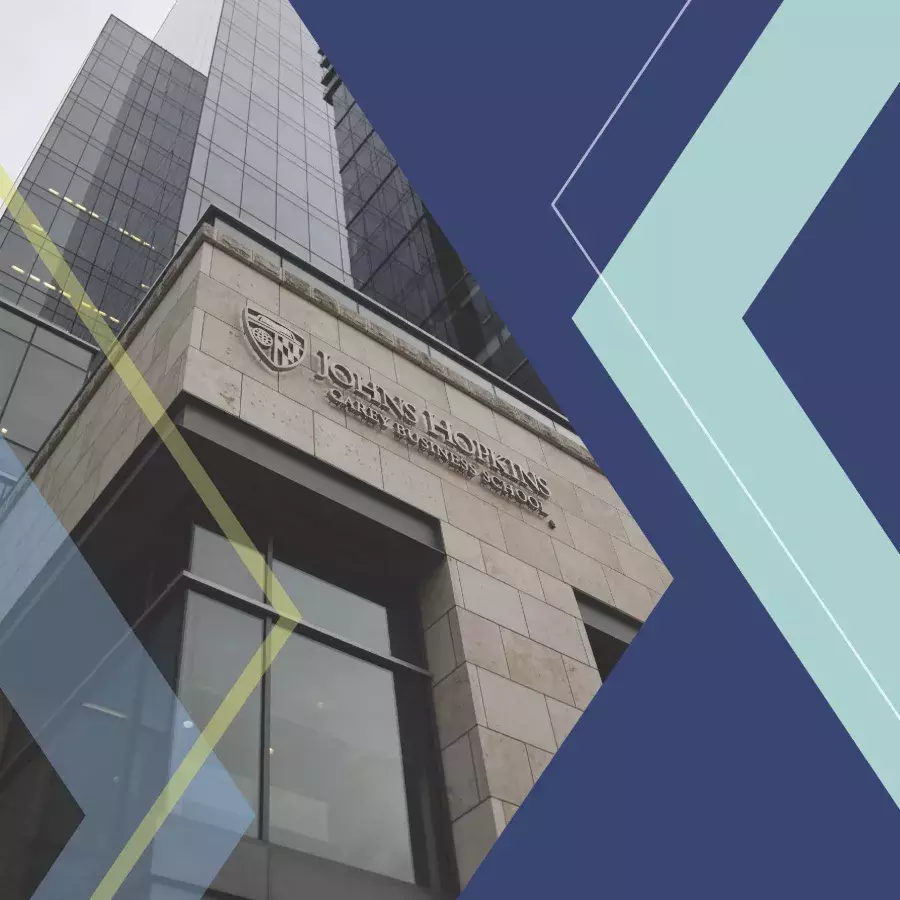Changing Business

Faculty and Research
Research news from Johns Hopkins Carey Business School
Changing Business is the research newsletter of the Johns Hopkins Carey Business School faculty. Each quarterly issue explores impactful, cutting-edge research that shapes business, policy, and society.
Carey is the business school of Johns Hopkins University, America’s first academic research institution. Using an interdisciplinary approach, Carey's faculty seeks to address the world's most pressing problems by applying a diversity of expertise in analytics, leadership, finance, marketing, and strategy to numerous topics including the business of health.
FALL 2025 ISSUE
In this issue

Health
Who stands to gain from Medicare site-neutral payment policies?
Professor Melinda Buntin examines proposed site-neutral payment policies for Medicare, which would pay hospital outpatient departments the same as lower-cost settings for similar services. The policies could dramatically reduce Medicare spending annually.

Economics
Banking technology adoption: Taking a broader view
Professor Alessandro Rebucci and colleagues’ novel model examines what happens when banks adopt technology produced by entrepreneurial firms, and the interplay between banking efficiency and the productivity of the borrowing firms. Read more about the findings.

Operations Management & Business Analytics
AI in health care: When it should lead—and when it should follow
Professor Tinglong Dai explores whether AI tools benefit doctors as gatekeepers or as a second opinion for care. The answer depends on patient risk.
Latest research
Aggregating portfolio quantities with betas: Theory, diagnosis of heuristic aggregation, and the limits of percentage‑change elasticity
Assistant Professor Yu An introduces a beta-weighted “risk matching” rule for aggregating asset-level quantities into portfolio-level measures, replacing the common but theoretically unsupported method of weighting by portfolio shares. Beta-based aggregation better reflects true portfolio risk exposure.
Cigarette taxes and the household budget
Associate Professor Michael Darden finds that cigarette taxes reduce smoking prevalence but increase spending among those who continue to smoke. Notably, low-income smokers reduce spending on housing, health care, education, and other needs by 2.12% for every $1 increase in cigarette taxes.
Offline privacy concerns in mental health care delivery through telehealth
Assistant Professor Atiye Cansu Erol’s research finds that telehealth improves access to postpartum mental health care, but its effectiveness is shaped by physical privacy concerns. The findings suggest that telehealth policies should consider both home and community privacy dynamics to better serve vulnerable populations.
Sequential decision making: From decision elicitation to strategy identification
Associate Professor Evgeny Kagan and Professor Ozge Sahin introduce a new framework for identifying decision strategies in sequential problems. Their findings show that decision makers often rely on simplified heuristics rather than optimal policies, and that the format used to elicit decisions can substantially influence strategy sophistication and economic outcomes.
Cross-lingual effects of AI-generated content on human work
Assistant Professor Wesley Koo finds that AI-generated business content in Arabic and Chinese is consistently lower in quality—less actionable and creative—than English output, leading to weaker productivity gains for non-English speakers. This gap is especially pronounced for more technical work tasks such as R&D.
What if NIH had been 40% smaller?
Professor Bhaven Sampat and colleagues simulate the effects of a 40% reduction in the NIH budget using grant-level data and links between NIH funding and FDA-approved drugs. They found nearly half of all drugs approved since 2000 are connected to research that would have lost funding.
Carey research in the news
Baltimore Banner, Before mass foreclosures, loan product looked good for Baltimore—Vadim Elenev
Baltimore Sun, Recession or a righting? Maryland’s housing market is cooling off—Christina DePasquale
CNBC, Food costs remain high—and could rise further with tariffs—Mario Macis
New York Times, Brazil just succeeded where America failed—Filipe Campante
NPR, Private equity, and crypto could be heading for your 401(k). Here's what to know—Jeff Hooke
The Athletic, Jim Valvano’s ESPYs speech touched hearts. It’s also a masterclass in public speaking—Steven Cohen
U.S. News & World Report, How to protect your data when using health tracking apps—Ritu Agarwal
USA Today, A $101,000 knee replacement? Why some hospitals charge far more than others—Ge Bai
Awards and recognition
Professor Paul Ferraro was appointed to the scientific technical advisory board of the Symbiosis Coalition, which seeks to partially meet greenhouse gas emission reduction goals through the restoration and protection of ecosystems that absorb and store carbon. The new coalition receives funding from Google, Meta, Microsoft, Salesforce, and McKinsey.
Professors Brian Gunia and Christopher Myers earned awards at the Academy of Management Conference in August. Gunia received the 2025 Outstanding Empirical Publication Award from the International Association for Conflict Management for his paper “The interplay of gender and perceived sexual orientation at the bargaining table: A social dominance and intersectionalist perspective.” Myers won the 2025 Outstanding Bridge Reviewer Mentor award from the Academy of Management Review for his work helping to develop new reviewers for the journal.
Dean Alex Triantis guest hosts the Deans Counsel podcast. His guest is Lee Newman, dean of Instituto de Impresa (IE) Business School and a professor of Behavioral Science and Leadership at IE University in Madrid, Spain.